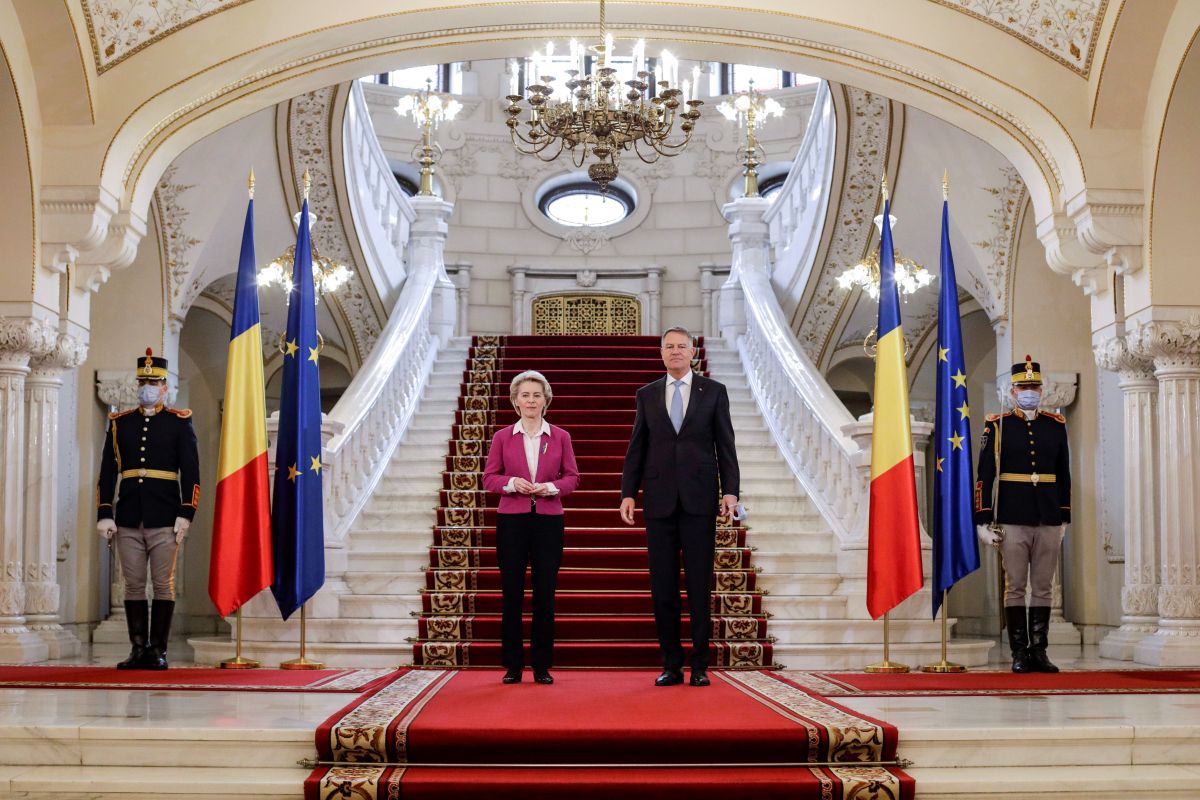Romania's Reaction to Russia's Invasion of Ukraine
Romania unequivocally condemned the Russian invasion and is providing assistance to Ukrainian war refugees. It supported the imposition of sanctions on Russia by the European Union and has sent humanitarian aid and military equipment to Ukraine. Poland and Romania face similar challenges related to refugees from the war and share a perception of the threat of Russian aggression. Polish-Romanian intergovernmental consultations in Warsaw on 3 March provided an opportunity for better coordination of activities and positions.
 Fot. INQUAM PHOTOS/George Calin/Reuters/Forum
Fot. INQUAM PHOTOS/George Calin/Reuters/Forum
How has Romania judged the Russian invasion of Ukraine?
President Klaus Iohannis and the government of the grand coalition of the National Liberal Party (PNL), the Social Democratic Party (PSD), and the Democratic Union of Hungarians in Romania condemned the Russian invasion. Parliament did the same in a resolution that passed by 339 votes for, with just 1 against and 2 abstentions. Iohannis supported the idea to grant EU candidate status to Ukraine, although he was not a signatory of the letter of eight presidents of the Central European states on this matter. Certainly, this resulted from his expectations to include Moldova in this postulate because the society recognises it to be a second national Romanian state. In turn, the opposition nationalist Alliance for Romanian Unity, currently the third most popular party, demands to start talks on a union, claiming that only this can prevent a further Russian invasion of Moldova.
How has Romania reacted to the sanctions against Russia?
Romania supported the imposition of sanctions by the EU on Russia. It also closed its airspace to Russian aircraft. It was one of the first countries in Europe to block the RT television channel and numerous online portals, including sputnik.ro, which broadcasted disinformation and hatred of Ukraine. Romania also announced the withdrawal of its 6.1% in shares in the Russian-controlled International Investment Bank (a remnant of Comecon). The PNL chairman, Florin Cîţu, also calls for Romania to withdraw from the similar International Bank for Economic Cooperation. Meanwhile, PSD leader Marcel Ciolacu calls for the imposition of radical sanctions on Russian companies operating in Romania. Romanian inspectors undertook increased controls in stores of the Russian network Berezka and stations of Lukoil and Gazprom, and temporarily closed 35 facilities and fined them almost €300,000.
How has Romania supported Ukraine?
Romania sent two convoys to Ukraine with medicine, fuel, ammunition, and other military equipment worth €3 million. It offered to create on its territory a logistics hub for international humanitarian aid. It also proposed to treat Ukrainian soldiers in its military hospitals. Romania hosts refugees, including those coming via Moldova. Authorities opened two reception centres and simplified procedures, allowing refugees to cross the border with just an ID and travel by rail for free. In the first week of the war, 139,000 people crossed the border, of which 52,500 have remained in Romania. According to Defence Minister Vasile Dîncu, the state is ready to host up to 500,000 people. The Romanian authorities also are helping India and other countries to repatriate their citizens, mostly students at Ukrainian universities escaping the war.
What kind of support does Romania expect from its allies?
With the increasing flow of refugees, Romania proposes to mobilise additional funds from the EU Asylum, Migration, and Integration Fund and the Integrated Border Management Fund. It also seeks EU support for the less capable Moldova. The government points out that Romania’s lack of membership in the Schengen Area makes protection of the borders harder for its services because they do not have full access to the Schengen Information System. Romania is particularly concerned about Russian occupation of Snake Island, which is just 45 km away from the Danube Delta and close to the gas-rich Romanian shelf. Therefore, it presses its NATO partners to strengthen its forces and in particular to accelerate the formation of a permanent battalion battle group on its territory. So far, the U.S. has transferred 2 F-35 and 8 F-16 fighters to Romania and doubled the number of troops to 2,000. France, which is expected to command the battle group, has sent around 500, and Belgium 300 soldiers. Italy doubled its Eurofighter contingent to eight, as did Germany to six, for the Air Policing mission in Romania.


